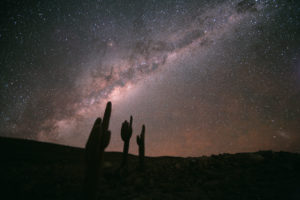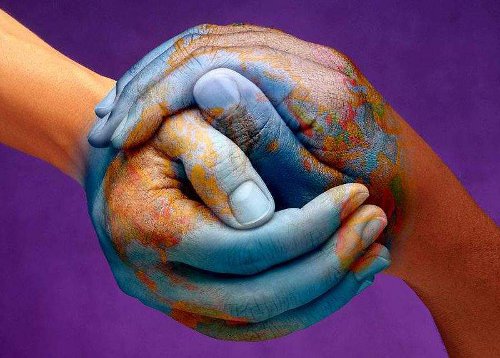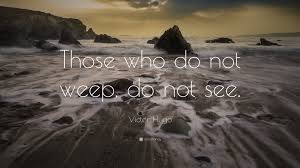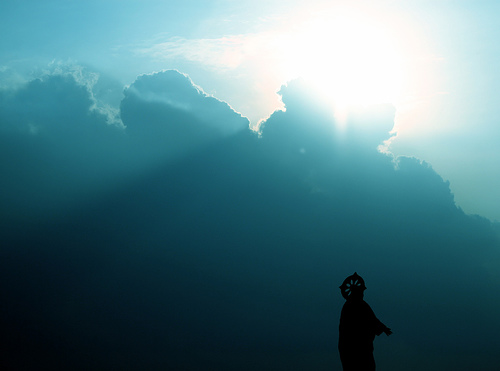Reflections on ‘loving the world’ from Gospel of John: Lenten lectionary
It’s the only thing that there’s just too little of
What the world needs now is love, sweet love,
No not just for some but for everyone.
There are mountains and hillsides enough to climb
There are oceans and rivers enough to cross,
Enough to last till the end of time.
It’s the only thing that there’s just too little of
What the world needs now is love, sweet love,
No, not just for some but for everyone.
— Songwriters: Burt Bacharach / Hal David
Loving the World
 Love the world and yourself in it, move through it as though it offers no resistance, as though the world is your natural element. ― Audrey Niffenegger, The Time Traveler’s Wife
Love the world and yourself in it, move through it as though it offers no resistance, as though the world is your natural element. ― Audrey Niffenegger, The Time Traveler’s Wife
Let us love the world to peace. — Eileen Elias Freeman
All the particles in the world are in love, and looking for lovers. — Attributed to Rumi
I am a little pencil in the hand of a writing God Who is sending a love letter to the world. — Mother Teresa
The world changes when we change. the world softens when we soften. The world loves us when we choose to love the world. — Marianne Williamson
At the center of religion is love. I love you and I forgive you. I am like you and you are like me. I love all people. I love the world. I love creating. Everything in our life should be based on love. — Ray Bradbury
No matter how much one may love the world as a whole, one can live fully in it only by living responsibly in some small part of it. Where we live and who we live there with define the terms of our relationship to the world and to humanity. We thus come again to the paradox that one can become whole only by the responsible acceptance of one’s partiality. — Wendell Berry
If your mind is expansive and unfettered, you will find yourself in a more accommodating world, a place that’s endlessly interesting and alive. That quality isn’t inherent in the place but in your state of mind. ― Pema Chödrön, Living Beautifully: with Uncertainty and Change
I love the world at 4 am. The streets are all mine. I don’t have to deal with traffic, and people’s bullshit. I don’t have to answer any calls or reply to any texts. I don’t have any responsibilities. No fights, no arguments, no hate, no love, no faith and no engagements. I can just be. Like we are meant to be. – Attributed to ‘Hedonist Poet’
Excerpts of Commentary on “For God So Loved the World” from Gospel of John chapter 3 (John 3:16)
Jesus articulates in this statement … that God is fundamentally a God of love, that love is the logic by which the kingdom of God runs, and that God’s love trumps everything else, even justice, in the end. — David Lose
… judgment … in John’s Gospel … represents your own moment of crisis of whether or not you will choose to enter into the life-sustaining relationship God provides … the intimacy God so desires with us here and now.— Karoline Lewis
To Begin With, the Sweet Grass (excerpts) — Mary Oliver
3. (excerpt)
Look, and look again.
This world is not just a little thrill for the eyes.
It’s more than bones.
It’s more than the delicate wrist with its personal pulse.
It’s more than the beating of the single heart.
It’s praising.
It’s giving until the giving feels like receiving.
You have a life—just imagine that!
You have this day, and maybe another, and maybe still another. …
7.
What I loved in the beginning, I think, was mostly myself.
Never mind that I had to, since somebody had to.
That was many years ago.
Since then I have gone out from my confinements, though with difficulty
I mean the ones that are thought to rule my heart.
I cast them out, I put them on the ush pile.
They will be nourishment somehow (everything is nourishment somehow or another).
And I have become the child of the clouds, and of hope.
I have become the friend of the enemy, whoever that is.
I have become older and, cherishing what I have learned,
I have become younger.
And what do I risk to tell you this, which is all I know?
Love yourself. Then forget it. Then, love the world.
Meditations: Vigiling, lessons from those who love Lazarus
In being with dying, we arrive at a natural crucible of what it means to love and be loved. And we can ask ourselves this: Knowing that death is inevitable, what is most precious today? — Roshi Joan Halifax, from Being with Dying
When someone we love is hurting or dying … These are often the times that call us to a higher response — to simply bear witness to another person’s life journey — not to engage in it, but to stand beside them in loving support. The focus is not to make the pain go away, but rather to let that person know that they are not alone and that we trust them to do whatever it is they need to do to go through that particular experience. … Sometimes we forget that our job is not to fix the situation at hand, but rather to help lift the burden of the other person by letting them know we care enough to show up. — Judith Johnson from ‘The Power of Bearing Witness’ on HuffingtonPost.com
Parkinson’s Disease — Galway Kinnell
While spoon-feeding him with one hand
she holds his hand with her other hand,
or rather lets it rest on top of his,
which is permanently clenched shut.
When he turns his head away, she reaches
around and puts in the spoonful blind.
He will not accept the next morsel
until he has completely chewed this one.
His bright squint tells her he finds
the shrimp she has just put in delicious.
Next to the voice and touch of those we love,
food may be our last pleasure on earth—
a man on death row takes his T-bone
in small bites and swishes each sip
of the jug wine around in his mouth,
tomorrow will be too late for them to jolt
this supper out of him. She strokes
his head very slowly, as if to cheer up
each separate discomfited hair sticking up
from its root in his stricken brain.
Standing behind him, she presses
her cheek to his, kisses his jowl,
and his eyes seem to stop seeing
and do nothing but emit light.
Could heaven be a time, after we are dead,
of remembering the knowledge
flesh had from flesh? The flesh
of his face is hard, perhaps
from years spent facing down others
until they fell back, and harder
from years of being himself faced down
and falling back in his turn, and harder still
from all the while frowning
and beaming and worrying and shouting
and probably letting go in rages.
His face softens into a kind
of quizzical wince, as if one
of the other animals were working at
getting the knack of the human smile.
When picking up a cookie he uses
both thumbtips to grip it
and push it against an index finger
to secure it so that he can lift it.
She takes him then to the bathroom,
where she lowers his pants and removes
the wet diaper and holds the spout of the bottle
to his old penis until he pisses all he can,
then puts on the fresh diaper and pulls up his pants.
When they come out, she is facing him,
walking backwards in front of him
and holding his hands, pulling him
when he stops, reminding him to step
when he forgets and starts to pitch forward.
She is leading her old father into the future
as far as they can go, and she is walking
him back into her childhood, where she stood
in bare feet on the toes of his shoes
and they foxtrotted on this same rug.
I watch them closely: she could be teaching him
the last steps that one day she may teach me.
At this moment, he glints and shines,
as if it will be only a small dislocation
for him to pass from this paradise into the next.
Life is glorious, but life is also wretched. It is both. Appreciating the gloriousness inspires us, encourages us, cheers us up, gives us a bigger perspective, energizes us. We feel connected. … On the other hand, wretchedness–life’s painful aspect–softens us up considerably. … When you are feeling a lot of grief, you can look right into somebody’s eyes because you feel you haven’t got anything to lose–you’re just there. The wretchedness humbles us and softens us, but if we were only wretched, we would all just go down the tubes. We’d be so depressed, discouraged, and hopeless that we wouldn’t have enough energy to eat an apple. Gloriousness and wretchedness need each other. One inspires us, the other softens us. They go together. ― Pema Chödrön from Start Where You Are: A Guide to Compassionate Living.
Blessing for the Dailiness of Grief
by Jan Richardson from The Cure for Sorrow
~
Sorry I am
to say it,
but it is here,
most likely,
you will know the rending
most deeply.
~
It will take your breath away,
how the grieving waits for you
in the most ordinary moments.
~
It will wake
with your waking.
~
It will
sit itself down
with you at the table,
inhabiting the precise shape
of the emptiness
across from you.
~
It will walk down the street
with you
in the form of
no hand reaching out
to take yours.
~
It will stand alongside you
in every conversation,
nearly unbearable
in its silence
that fairly screams.
~
It will
brush its teeth
with you at night
and climb into bed
with you
when finally
you let go
of this day.
~
Even as it goes
always with you,
it will still manage
to startle you with
its presence,
causing you to weep
when you enter
the empty kitchen
in the morning,
when you spread fresh sheets
on the bed you shared,
when you walk out
through the door
alone
and pass back through it
likewise.
~
It is here
you will know it best—
in the moments
that made up the rhythm
of your days,
that fashioned the litany
of your life,
the togethering
you will never know
in the same way again.
~
But I will tell you
it is here, too,
that your solace lies.
It will wait for you
in those same moments
that stun you
with their sorrow.
~
I cannot tell you how,
but it will not cease
to carry you
in the cadence that has
forever altered
but whose echo will persist
with a stubbornness
that will surprise you,
bearing you along,
breathing with you still
through the terrible
and exquisite
ordinary days.
Grief does not change you … It reveals you. ― John Green from The Fault in our Stars
“Isn’t it weird … the way you remember things, when someone’s gone? … all I could think about was that day … It’s even worse when someone’s sick for a long time … You forget they were ever healthy, ever okay. It’s like there was never a time when you weren’t waiting for something awful to happen. … it’s only been in the last few months that I’ve started remembering all this good stuff, funny stuff … I can’t believe I ever forgot it in the first place.”
“You didn’t forget … You just couldn’t remember right then. But now you’re ready to, so you can.”
― Sarah Dessen from The Truth About Forever
You will not ‘get over’ the loss of a loved one; you will learn to live with it. You will heal and you will rebuild yourself around the loss you have suffered. You will be whole again but you will never be the same. Nor should you be the same nor would you want to. ― Elisabeth Kübler-Ross
Grief turns out to be a place none of us know until we reach it. We anticipate … We misconstrue … We might expect if the death is sudden to feel shock. We do not expect the shock to be obliterative, dislocating to both body and mind. … In the version of grief we imagine, the model will be “healing.” A certain forward movement will prevail … after which this hypothetical healing will take place … Nor can we know ahead of the fact (and here lies the heart of the difference between grief as we imagine it and grief as it is) the unending absence that follows, the void, the very opposite of meaning, the relentless succession of moments during which we will confront the experience of meaninglessness itself. — Joan Didion, from The Year of Magical Thinking
You will lose someone you can’t live without, and your heart will be badly broken, and the bad news is that you never completely get over the loss of your beloved. But this is also the good news. They live forever in your broken heart that doesn’t seal back up. And you come through. It’s like having a broken leg that never heals perfectly—that still hurts when the weather gets cold, but you learn to dance with the limp. ― Anne Lamott
Deep grief sometimes is almost like a specific location, a coordinate on a map of time. When you are standing in that forest of sorrow, you cannot imagine that you could ever find your way to a better place. But if someone can assure you that they themselves have stood in that same place, and now have moved on, sometimes this will bring hope. ― Elizabeth Gilbert from Eat, Pray, Love
Meditation: Seeing & Not-Seeing
Those things that nature denied to human sight, she revealed to the eyes of the soul. — Ovid
The few wonders of the world only exist while there are those with the sight to see them. — Charles de Lint
The only thing worse than being blind is having sight but no vision. — Helen Keller
Blindness
In the fullness of the years, like it or not,
A luminous mist surrounds me, unvarying,
That breaks things down into a single thing,
Colorless, formless. Almost into a thought.
The elemental, vast night and the day
Teeming with people have become that fog
Of constant, tentative light that does not flag,
And lies in wait at dawn. I longed to see
Just once a human face. Unknown to me
The closed encyclopedia, the sweet play
In volumes I can do not more than hold,
The tiny soaring birds, the moons of gold.
Others have the world, for better or worse,
I have this half-dark. and the toil of verse.
― Jorge Luis Borges
A single candle can light a thousand more without diminishing itself. — Hillel the Elder
Our very eyes are sometimes, like our judgments, blind. ―William Shakespeare
No one can become fully aware of the very essence of another human being unless he loves him. By his love he is enabled to see the essential traits and features in the beloved person; and even more, he sees that which is potential in him … By making him aware of what he can be and of what he should become, he makes these potentialities come true. ― Viktor Frankl, Man’s Search for Meaning
That though the radiance which was once so bright be now forever taken from my sight. Though nothing can bring back the hour of splendor in the grass, glory in the flower. We will grieve not, rather find strength in what remains behind. — William Wordsworth
Doing as others told me, I was blind.
Coming when others called me, I was lost.
Then I left everyone, myself as well.
Then I found everyone, myself as well.
― Jalaluddin Rumi
To be blind is not miserable; not to be able to bear blindness, that is miserable. — John Milton
What you lose in blindness is the space around you, the place where you are, and without that you might not exist. You could be nowhere at all. — Barbara Kingsolver
Man cannot discover new oceans unless he has the courage to lose sight of the shore. — Andre Gide
A blind man was riding an unheated train
— Arseny Tarkovsky, translated from the Russian by Philip Metres & Dimitri Psurtsev
A blind man was riding an unheated train,
From Bryansk he was traveling home with his fate.
~
Fate whispered to him so the whole car could hear:
And why should you care about blindness and war?
~
It’s good, she was saying, you’re sightless and poor.
If you were not blind, you’d never survive.
~
The Germans won’t kill you, you’re nothing to them.
Allow me to lift that bag on your shoulder—
~
The one with the holes, the empty torn one.
Let me just raise your eyelids wide open.
~
The blind man was traveling home with his fate,
Now thankful for blindness. Happy about it.
Meditation: drink from the well — wonder & curiosity
I think us here to wonder, myself. To wonder. To ask. And that in wondering bout the big things and asking bout the big things, you learn about the little ones, almost by accident. But you never know nothing more about the big things than you start out with. The more I wonder, the more I love. ― Alice Walker, The Color Purple
Wonder by Deakin Dixon
I who flounder in the things of the spirit,
Deep in the things of the flesh, and deep in song.
Burn this self till I can no longer bear it,
Life frenzying my ears like a deep gong –
I, who have not learned to walk as yet
High above men, with dark peace in my eyes,
To walk wisely, knowing only to let
My wise hands covet the trees, desire the skies:
I, abandoned to things bright or ugly,
To all things living, asking bowed or bold,
Marvel at you, wrapped securely, snugly,
In beauty and bearing. You seem strangely old –
Until I suddenly know that you have gone
Through places I have feared to tread upon.
Look up at the stars and not down at your feet. Try to make sense of what you see, and wonder about what makes the universe exist. Be curious. – Stephen Hawking
 The more clearly we can focus our attention on the wonders and realities of the universe about us, the less taste we shall have for destruction. ― Rachel Carson
The more clearly we can focus our attention on the wonders and realities of the universe about us, the less taste we shall have for destruction. ― Rachel Carson
Look at everything always as though you were seeing it either for the first or last time: Thus is your time on earth filled with glory. ― Betty Smith, A Tree Grows in Brooklyn
Wonder is the beginning of wisdom. ― Socrates
Kids think with their brains cracked wide open; becoming an adult, I’ve decided, is only a slow sewing shut. ― Jodi Picoult, My Sister’s Keeper
The invariable mark of wisdom is to see the miraculous in the common. ― Ralph Waldo Emerson
Every day we are engaged in a miracle which we don’t even recognize: a blue sky, white clouds, green leaves, the black, curious eyes of a child – our own two eyes. All is a miracle. ― Thich Nhat Hahn



